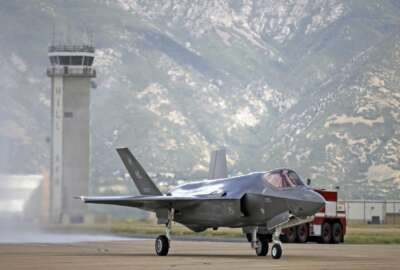
DoD’s second financial audit uncovers 1,300 new deficiencies
Although the Pentagon resolved more than 500 findings from last year's audit, so far, auditors are identifying financial management problems faster than DoD can fix...
The results of the Pentagon’s second-ever full financial audit are a decidedly mixed bag: Although officials were able to point to some areas of significant progress in managing the Defense Department’s finances over the past year, overall, auditors are uncovering new problems faster than the department is fixing them.
At this time a year ago, auditors had made 2,410 separate findings and recommendations during the department’s first-ever financial audit. In the 2019 financial report DoD issued Friday evening, officials said 556 of those had been resolved. But besides the more than 1,800 problems the department is still wrestling with from 2018, auditors made more than 1,300 new findings during the course of the latest audit.
In addition, the audit turned up a larger number of material weaknesses this year.
Auditors define those as broad and serious management problems that make it at least possible that the department will misstate its overall financial positions to the public and to Congress. Last year, there were 20 material weaknesses; in the latest audit, there are 25, including newly identified high-risk areas involving the military services’ privatized housing programs and the F-35 program.
Nonetheless, both DoD and its inspector general said they were able to point to distinct areas of progress in 2019. For instance, the Defense Commissary Agency is expected to earn a clean opinion for the first time. That would bring the number of DoD organizations or programs with positive audit results to a total of seven, out of the more than 20 examinations that make up the full, department-wide audit.
“The audit is doing what the department needs it to do — expanding testing and generating new findings and recommendations,” the department said in a statement. “Auditors assessed the completeness and accuracy of financial data, the counts, location and condition of assets, and corrective actions implemented to address prior-year findings and recommendations. The key benefits of audits come from these findings, which help us identify vulnerabilities in cybersecurity, improve inventory management, and provide better data for decision-making.”
And DoD financial management officials said one reason that more audit findings haven’t been deemed resolved is that the department’s corrective action plans haven’t been in place long enough for the massive team of 1,400 independent auditors to tell if they’re working.
“The department anticipates [notices of findings and recommendations] closing at increased rates over time as the audit and related remediation efforts mature,” according to Friday’s report. “As the closings of these NFRs grow, the related material weaknesses are expected to downgrade or be resolved as the effect of implemented corrective actions continue to manifest.”
Related Stories

DoD audit uncovers millions of dollars in unaccounted-for spare parts
“While progress has been made, much more work is necessary for better financial management and a clean audit opinion,” the OIG said in a statement Friday. “It is clear that the road to a clean financial statement opinion for the DoD is a long-term effort. For example, the DoD and its components must focus on key areas that require development of efficient and sustainable business processes.”
DoD remains the only federal agency that has not yet passed a full financial audit, a requirement Congress first imposed in the 1990 CFO Act. David Norquist, the deputy secretary of Defense who made audit improvements a priority during his previous tenure as DoD’s comptroller, is set to testify about the 2019 results and DoD’s prospects for finally complying with the law during a hearing of the Senate Armed Services Committee on Wednesday.
However, parts of the audit are still underway. The Pentagon said financial statements for the Defense Information Systems Agency and for the inspector general’s office were still being audited, but that it expected the IG to get a clean opinion.
Copyright © 2025 Federal News Network. All rights reserved. This website is not intended for users located within the European Economic Area.
Jared Serbu is deputy editor of Federal News Network and reports on the Defense Department’s contracting, legislative, workforce and IT issues.
Follow @jserbuWFED





